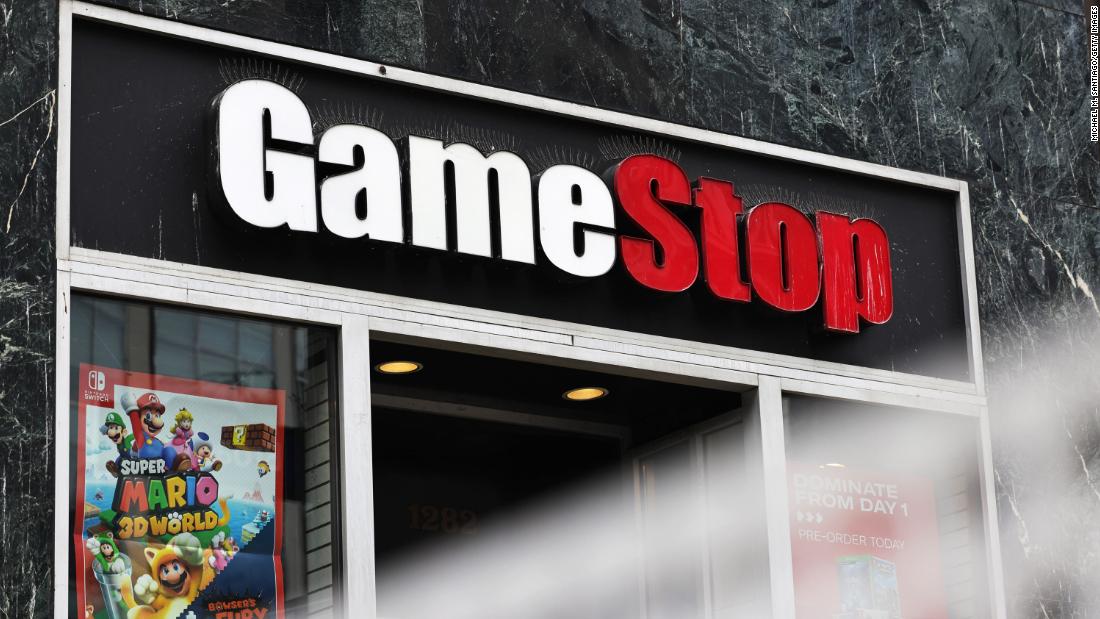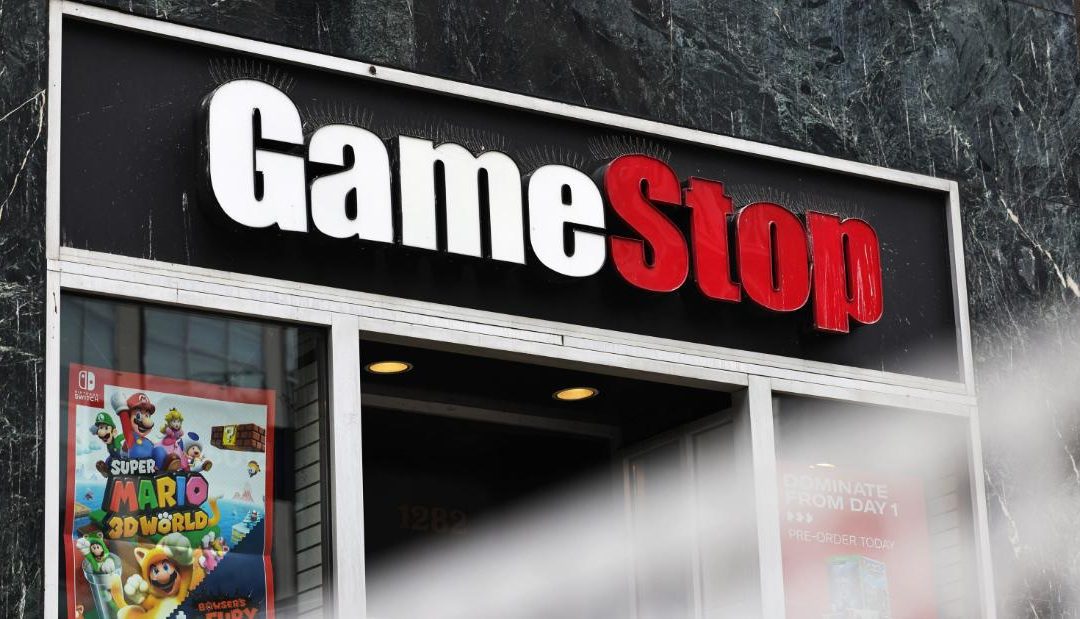If you’ve been paying attention to the news over the last few days, then you’ll know that there have been some intense rumblings about the stock price of GameStop and even some other companies which have exploded out of control and caused news reporters and hedge fund managers across the world to condemn those responsible. So, what exactly happened with GameStop and why are hedge funds unhappy with the situation?

To get the answer to that question, we need to go back to the beginning of how the whole situation started and some of the reasons behind it.
Background
So for those of you who aren’t aware of what GameStop actually is, it’s a retail brand from the United States that is incredibly similar to the closely named store Game in the UK. They sell a manner of video games and related items, including consoles and memorabilia and have been a staple in the gaming world for a number of years now since being founded in Dallas, Texas in 1984.
Despite a previous track record of success at the company, like many physical retailers the company has gone through a tough stretch in recent times, which can be attributed largely to the shift in online shopping, compared to people going in-store to buy things. This is reflected in the fact that the company’s share price has continuously dropped from $62.30 on December 28th, 2007, to a recent rock bottom figure of $4.75 in August 2020.
So, how does this capitulation in share price make the company newsworthy? Enter the hedge funds. Numerous hedge funds participate in a practice called Short Selling. This process is quite simple, with the investor borrowing some of a company’s stock, they then sell this stock, only to buy it back and return it to the person who loaned it to them.
The idea behind this is that the investor will make more money if the stock goes down. This practice has often been labelled as immoral, due to the fact that the investors are profiting from the misfortune of the company they are trading on. One of the firms that were involved in doing this to GameStop includes Melvin Capital, a hedge fund with a reported $8 Billion worth of assets under their management at the time of writing.
What Happened With GameStop?
This is the money-maker (or loser) question, depending on who you ask. What actually happened was that a group of people came together on the social networking website Reddit to try and cause ripples in the market. On one of the site’s sub-forums referred to as r/wallstreetbets, members of the community decided to take part in a short squeeze aimed at GameStop. What eventually occurred was that GameStop’s stock underwent a dramatic increase of 1,500% at its highest, coming to a one-day high of $483.00 on the 29th of January.
The main question you may be asking is, why did this happen? There’s a number of reasons and it would likely be impossible to identify all of the reasons in this one article. Some people have simply been buying to mess with the hedge funds, as an act of financial rebellion, others saw an opportunity to make some quick money from the meteoric rise of the company’s stock price and hundreds of other people have their own motivations for the act.
At the time of writing, the company’s stock price has lowered slightly from its original high but is currently still holding strong at a value of $325.00 (February 1st, 2021). It’s currently unclear how the situation will resolve itself and whether GameStock’s share price will rapidly plummet, hold, or gradually return to its pre-short squeeze levels.
How Did This Impact The Hedge Funds and Brokers?
As can easily be imagined, those that had taken part in shorting GameStop have suffered massive losses as a result of the actions of people on Reddit and the subsequent knock-on effect of the short squeeze being widely reported. The aforementioned Melvin Capital saw the worst of this, with the company having made a monumental $7 billion loss as a result of the short squeeze and according to the Wall Street Journal, the company was actually down 53% due to the event.
Trading platforms have also drawn the ire of some of the general public due to their responses to the problem, being accused of protecting hedge funds and diminishing the rights of retail investors in favour of professional investors. For example, the well-known trading platform Robinhood prevented its users from opening new positions on volatile stocks such as GameStop, despite the fact that the platform still allowed for people to sell and close their position, other platforms such as Trading 212 and eToro followed a similar path.
The platforms themselves have tried to explain that the reason for the imposed restrictions was due to the clearing houses raising the collateral requirement to complete trades. This hasn’t stopped furious Redditors and other retail investors from calling upon the public to file class-action lawsuits against the brokers for the perceived stonewalling that they’ve experienced.
Other Examples of Companies Impacted By This
The r/wallstreetbets Subreddit hasn’t rested on just inflating the stock price of GameStop, other companies have also been on the receiving end of this type of investment from a number of different retail investor groups. Down below are some examples of similar companies that have had their stock price inflated.
As can be expected from these companies receiving a flood of investment, they have also seen sharp increases in their stock prices. AMC reported increases of 480.1%, Blackberry saw a 104.9% increase, Express Inc experienced a mammoth rise of 680.4%, Nokia rose by 133.1% and BB Liquidating rose by 140%.
It is clear from the activity coming from Reddit and the rest of the internet that people are going to attempt to keep this ongoing trend alive and will seek to further inflate the prices of stocks that are being consistently shorted by hedge funds. It is unclear how this is going to turn out and the potential consequences of these actions have only been discussed, with no real action being taken at this time.
What Have The Responses To The GameStop Situation Been?
The overall response to the ongoing situation has been incredibly polarised and contentious, with numerous people throwing their hat in the ring on the current events. For example, mercurial tech entrepreneur and the seeming hero of mankind Elon Musk tweeted on his personal account about the ongoing events with GameStop.
The tweet itself sparked a further increase in the price of GameStop’s stock, and the company’s valuation eventually topped $10 Billion as a result of this. Some commentators note Elon Musk’s irony calling out short selling as an unnatural marketing force, especially when his pure social power allows him to inflate or deflate a company’s stock with a mere tweet.
American politicians have also been quick to get involved in the matter, with the Democratic Senator for Massachusetts, Elizabeth Warren, calling on the Securities and Exchange Commission (SEC) to take action in the ongoing events and is also calling on the SEC to be specific about the steps it will take to intervene in the market.
Forbes has quoted Senator Warren saying the following in a five-page letter to the SEC…
“These wild fluctuations are just the latest indication that many private equity firms, hedge funds and other investors–big and small–are treating the stock market as a casino, giving little consideration to the companies, communities, workers and consumers that may be affected by these risky bets. The recent chaos reveals a clear distortion in securities markets, with benefits accruing to investors that do not benefit the company’s workers, consumers or the broader economy.”
It’s clear from her statement that Senator Warren heavily opposes the current fluctuations in the stock market, with her justification of her position being that they can put businesses, communities, employees and customers at risk, and the benefits of such trades only impact the investors that are involved, regardless of their size.
Other people have come out in opposition of the latest moves in the GameStop fiasco, with Ben Inker, the Head of Asset Allocation at Mayo Van Otterloo and Co saying the following that the actions being “dangerous and weird“, he also speculates that these events will cause several people to lose their life savings in the long-run.
Scholarly opinion on the matter can be found in the form of Signal Aral, who is the Director of the Initiative on the Digital Economy at the Massachusetts Institute of Technology (MIT), who highlighted the fact that the current GameStop fiasco bears similarities to previous misinformation campaigns seen in elections leading up to the Capitol Riot. He highlights the fact that social media allows for the wide-scale coordination and rapid actions seen in the movement in the modern-day. He also emphasised that it could be challenging to blame an individual in these situations.
“There’s an important distinction between an actor who is coordinating manipulation and a retail investor who gets caught up in the movement. We witnessed those two types of people in the Capitol riot as well.”
Despite the negative opinions of many people involved in government and the financial markets themselves, many individuals do not care about these negative opinions or believe that they are guilty of scaremongering. Many see this as an opportunity to bring democracy to the world’s financial systems and take a pound of flesh from the hedge funds found in the past to manipulate the financial markets and extract profits from others’ misfortune.
Conclusion
In closing, it can be seen that the internet has the power to make drastic shifts in the global landscape, beyond allowing people to communicate with each other like with messaging services like Facebook, WhatsApp and Instagram. Instead, the internet and the rapid dissemination of information through social media now provides the opportunity for disenfranchised groups to rapidly grow their followings and then to take drastic actions once the optimum number of supporters is growing.
There have been numerous examples of this in the past with the #MeToo movement, the #blacklivesmatter movement, and now it can be seen in the stock market due to the actions of those who have inflated stock prices to stick it to the man.
Check out more interesting stories from our blog!

